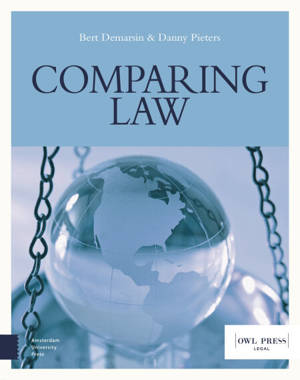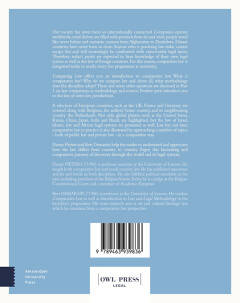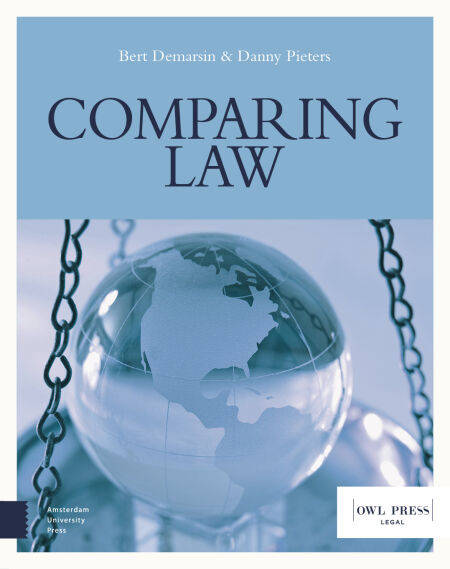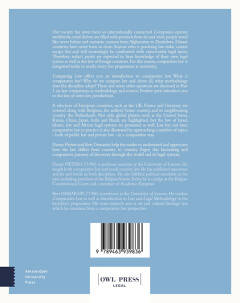
- Afhalen na 1 uur in een winkel met voorraad
- Gratis thuislevering in België vanaf € 30
- Ruim aanbod met 7 miljoen producten
- Afhalen na 1 uur in een winkel met voorraad
- Gratis thuislevering in België vanaf € 30
- Ruim aanbod met 7 miljoen producten
Zoeken


Omschrijving
Our society has never been so internationally connected. Companies operate worldwide, retail shelves are filled with products from far and wide, people travel like never before and maintain contacts from Afghanistan to Zimbabwe. Distant countries have never been so close. Anyone who is practicing law today cannot escape this and will increasingly be confronted with cross-border legal issues. Therefore, today's jurists are expected to have knowledge of their own legal system as well as the law of foreign countries. For this reason, comparative law is integrated today in nearly every law program at university.
Comparing Law offers you an introduction to comparative law. What is comparative law? Why do we compare law, and, above all, what methodology does the discipline adopt? These and many other questions are discussed in a first part on law comparison as methodology and science. Furthermore, this book introduces you to the law of a range of important jurisdictions.
This book covers a selection of European countries, such as the UK, France and Germany. Belgium, the authors' home country, and its neighbouring country the Netherlands, are also discussed. Not only global players, such as the United States, Russia, China, Japan, India and Brazil, are highlighted, but the law of Israel, Islamic law and African legal systems are presented as well. Last but not least, this book illustrates comparative law in practice by approaching a number of topics - both of public law and private law - in a comparative way.
Danny Pieters and Bert Demarsin help the reader to understand how the law is different from country to country. Enjoy this fascinating and comparative journey of discovery through the world and its legal systems.
Comparing Law offers you an introduction to comparative law. What is comparative law? Why do we compare law, and, above all, what methodology does the discipline adopt? These and many other questions are discussed in a first part on law comparison as methodology and science. Furthermore, this book introduces you to the law of a range of important jurisdictions.
This book covers a selection of European countries, such as the UK, France and Germany. Belgium, the authors' home country, and its neighbouring country the Netherlands, are also discussed. Not only global players, such as the United States, Russia, China, Japan, India and Brazil, are highlighted, but the law of Israel, Islamic law and African legal systems are presented as well. Last but not least, this book illustrates comparative law in practice by approaching a number of topics - both of public law and private law - in a comparative way.
Danny Pieters and Bert Demarsin help the reader to understand how the law is different from country to country. Enjoy this fascinating and comparative journey of discovery through the world and its legal systems.
Specificaties
Betrokkenen
- Auteur(s):
- Uitgeverij:
Inhoud
- Aantal bladzijden:
- 332
- Taal:
- Engels
Eigenschappen
- Productcode (EAN):
- 9789493429741
- Verschijningsdatum:
- 23/04/2025
- Uitvoering:
- E-book
- Beveiligd met:
- Adobe DRM
- Formaat:
- ePub

Alleen bij Standaard Boekhandel
+ 51 punten op je klantenkaart van Standaard Boekhandel
Beoordelingen
We publiceren alleen reviews die voldoen aan de voorwaarden voor reviews. Bekijk onze voorwaarden voor reviews.








